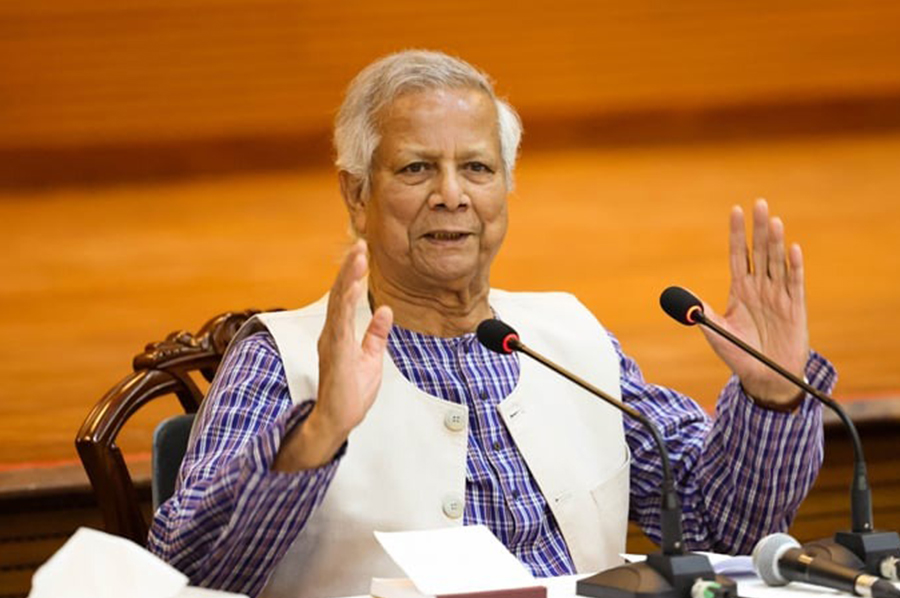

Chief Adviser Professor Muhammad Yunus has stressed the need for establishing a new economic zone involving Bangladesh, India, Nepal, and Bhutan.
"The process has begun. This process should be accelerated so that the economic zone can be established," he told a programme hosted by the Bangladesh Administrative Service Association (BASA) at the Bangladesh-China Friendship Centre in Dhaka on Sunday night.
Finance Adviser Dr Salehuddin Ahmed, Law Adviser Dr Asif Nazrul, Information and Broadcasting Adviser Md Nahid Islam, Cabinet Secretary Dr Sheikh Abdur Rashid, and BASA President and LGRD Secretary Md Nazrul Islam also spoke at the event.
Speaking at the event, Prof Yunus said that as a nation, Bangladesh has immense potential due to its geographical location, with two giant countries—India and China—being its neighbours.
He said that China and India are progressing fast, and Bangladesh has the potential to advance along with the two neighbours.
Noting that if Bangladesh can utilise its marine potential, it will advance economically, the Chief Adviser said, "There is a huge scope to generate hydropower in the Himalayas, and Nepal is keen to export its hydroelectricity, and we are ready to buy it."
Currently, Indian territory is not allowing the import of power from Nepal, but "We hope that they will allow us to use their land for their economic benefit—for the welfare of all."
Prof. Yunus observed that if Bangladesh gets the opportunity to use Indian land in a broader way, no one will be able to halt its progress.
"Bangladesh is a very lucky nation due to its location," he added.
He said that if marine ports could be set up along the Bangladesh coastline—from Cumilla to Teknaf—in a row, and a deep seaport in Matarbari, Bangladesh's economy will advance quickly.
"If we can give the ships of the whole world the opportunity to use these ports, who will halt us?" the chief adviser questioned.
He said there is an economic zone in South Asia, but the bad luck is that the zone has yet to be opened.
Nepal and Bhutan are landlocked countries, and the seven sisters of India have no seaports, he said, adding that if the new economic zone could be established, all the neighbouring countries would be able to explore immense trade potential.
Prof Yunus said goods could be transported directly to Nepal, Bhutan, and the seven sisters, while their goods would come to Bangladesh—and this is the economy.
"So, in the context of geographical location, we are lucky enough," he added.


 For all latest news, follow The Financial Express Google News channel.
For all latest news, follow The Financial Express Google News channel.